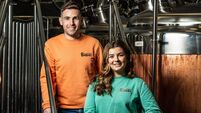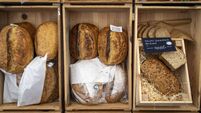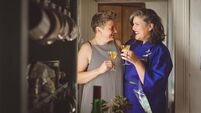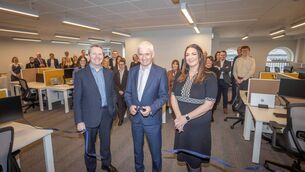Claiming back the fridge: How Ireland fell for soft drinks without the hangover
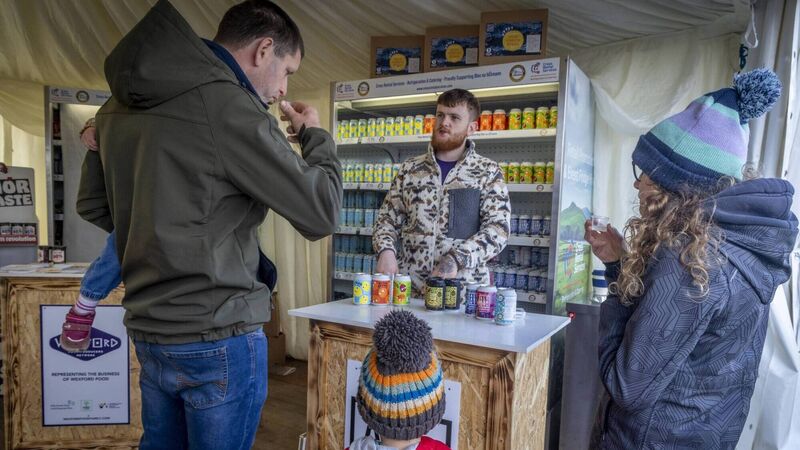
All About Kombucha, one of the award-winning innovators at Blas na hÉireann 2025.
For decades, the fridge in any Irish café, pub, or corner shop told the same story. A veritable rainbow of American sugar water screaming for attention, selling sameness at scale. Red cans in their many permutations lined up next to their blue competitors. Some green bottles. Maybe a Club Rock Shandy, if you were lucky. These were the only options available anywhere. And they were everywhere.
Their corporate identities were woven so seamlessly into the landscape that choosing a Coke or a Heineken felt like an inevitability. But inevitabilities are just choices that have been made long enough to look like nature. Lately, those inevitabilities are cracking.
In the past five years, Irish fridges have undergone a Shakespearean sea change. Open them now and you’ll see a chorus more Celtic than conglomerate. Kombucha brewed in Galway. Craft sodas from Westmeath. Non-alcoholic pale ales that are dry hopped in Louth. Unfiltered 0 per cent IPAs from Dublin 7. Finally, local Irish businesses have rolled up their sleeves to take on Goliathian conglomerates that positioned themselves as inevitable by consequence of their ubiquity.
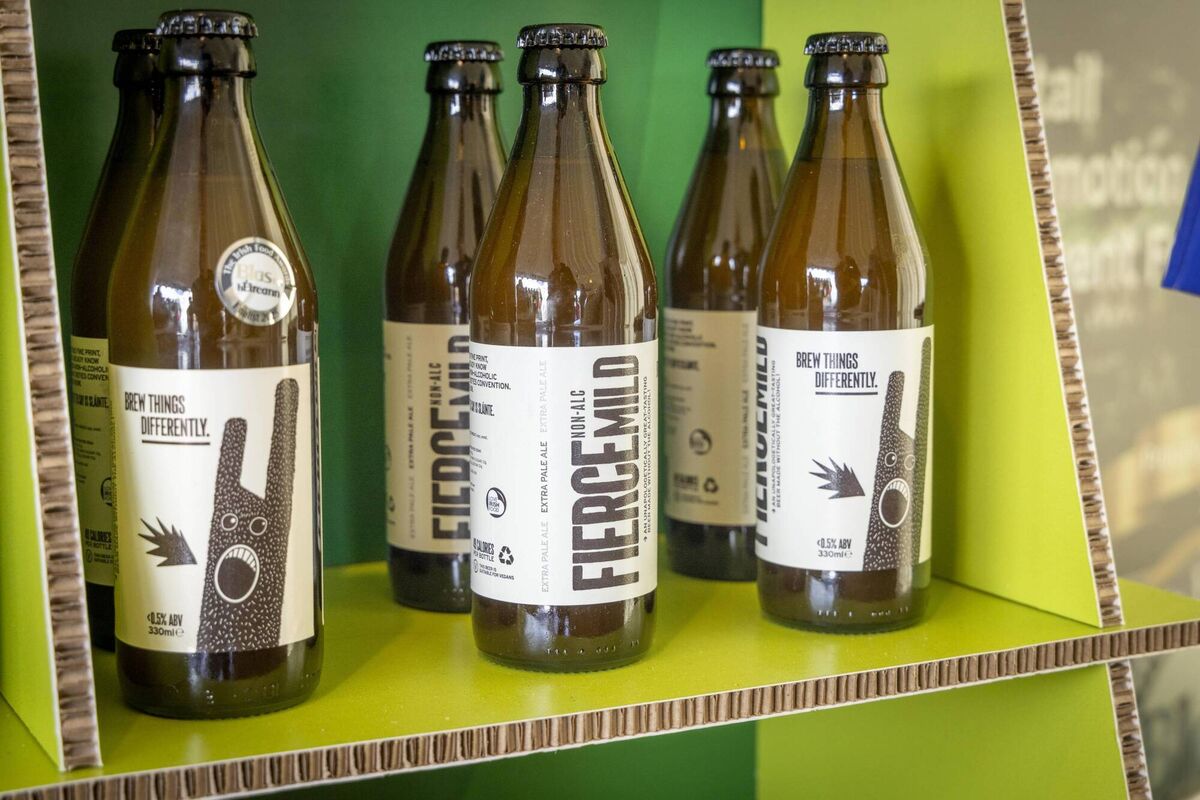
There’s real cultural tectonics underneath this shift. In Ireland and many western countries, wellness is de rigueur, and sugar has become enemy number one. Alternative drinks arrived on our island along with self-optimisation staples like high-protein meals and saunas. Globally, they seem to go hand in hand economically, culturally, logically, and practically. While it’s tempting to write off low and no beverages as a temperance fad imported from the internet.
It’s more like a shift in Irish culture. The damp lifestyle, as one brewer put it, has arrived. Our relationship with alcohol, like with any habit or substance, is rarely fixed. It ebbs and flows as our lives do; shaped by shifting health, changing priorities, the rise and fall of income, the circles we move in, and our physiologically aging taste buds. What soothes us today may weigh us down tomorrow.
“It’s so interesting to see Ireland’s attitude towards health and alcohol changing,” says Blas na hÉireann judge Sian Conway. “It comes from widespread and genuine desires to do better by our bodies and our minds.”
The gentler, truer part of the low and no story is inclusion. A table where the person training for a marathon, the friend thinking about fertility, the driver, the simply-tired, and the not-in-the-mood can all order something adult, raise a glass, and not be shunted to the American soft drink gulag of yore. If pubs, cafés, and corner shops are to remain our version of third spaces, they now have Irish-crafted furniture for everyone.
That shift got the attention of the people behind Blas na hÉireann, the Irish Food Awards. For the first time this year, low and no alcoholic drinks have multiple categories. Fallon Moore, who helps run the awards, said, “For years, there were trickles, one or two producers. Now there’s enough to be competitive. And they’re good enough to deserve recognition.”
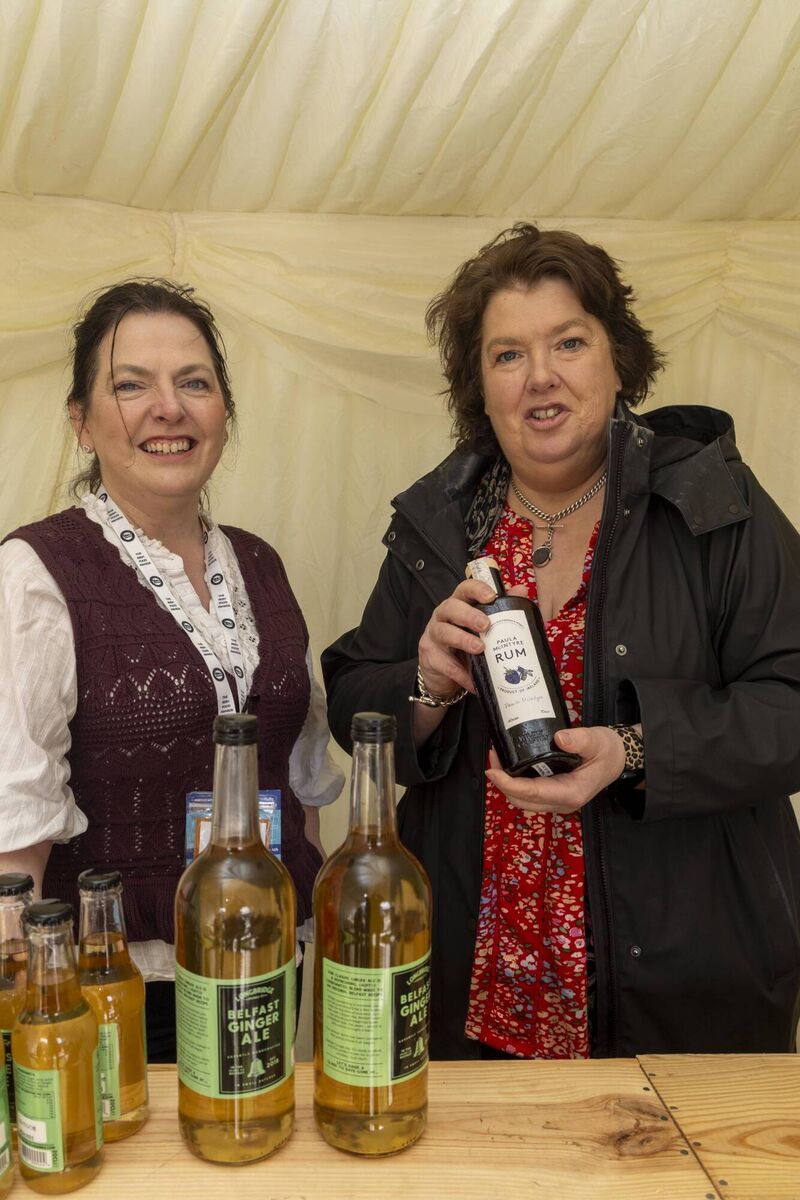
The movement is still finding itself. Non-alcoholic drinks have long been defined by what they’re not rather than what they are. Treated as drinks that serve a substitutive social function, rather than being solid in their own right.
Legally and technically, they include everything from ginger ale to protein chocolate milk. But the drinks now winning fridge space and awards are a far cry from the concentrated orange juice designated drivers of the ’90s knew. They’re aiming for adult complexity: bitterness, sourness, funk, tart, saline, spicy.
As Moore puts it, “People aren’t necessarily looking for straight fruit juice flavours anymore. Judges are recognising more complex flavours, and that’s what people are looking for when they’re out.” The category’s quality jump is the engine powering the changing landscape of Irish fridges.
On the west coast, kombucha evangelists Emmett Kerrigan and Keith Loftus of All About Kombucha have taken a different path to the same point. Their entry was accidental. As two friends in Canada, they discovered the tart, living tea and the lifestyle that accompanied it. After they returned to Ireland, they both missed the Canadian way of life and the accoutrements that accompanied it. So they incorporated and decided to “back the booch”.
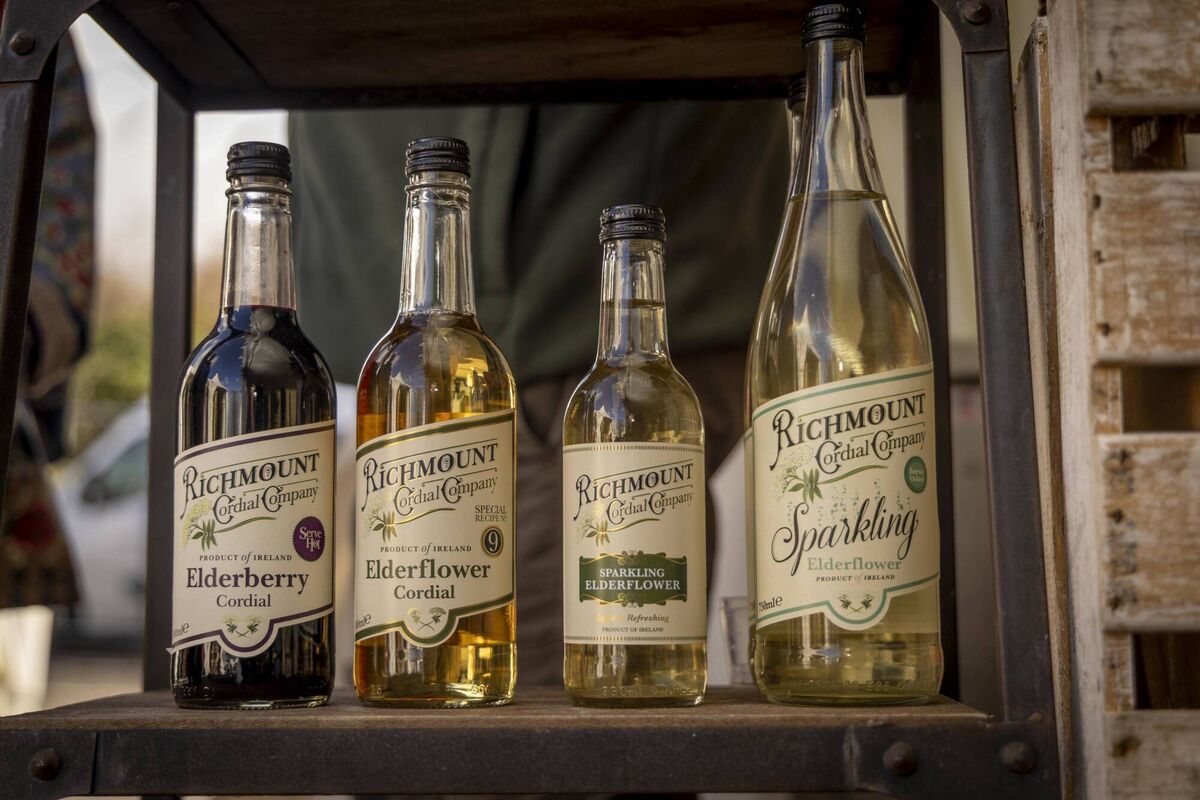
As a company, they began in a shed, then at a market stall. By pairing sandwiches with free kombucha samples, they Trojan-horsed their way into the vernacular. “We could sell them the avocado sandwich,” Loftus told me, “and then introduce them to kombucha. Rather than coming back for the sandwich, they came back for the bottle.”
Without a brave push like this toward the experimental, we wouldn’t have the spectacularly broad palette of ingredients or fun things that make up the contemporary Irish pantry. The principle, Loftus declared, has never shifted a millimetre.
“Live kombucha means it’s not pasteurised, not filtered. It’s raw, living. That’s what sets ours above the rest.” When Covid wiped out cafés and festivals, the duo landed a coveted spot on Grow with Aldi. That became the slingshot that brought them to a national audience. Winning the inaugural Blas na Éireann Award for best fermented soft drink in 2024 didn’t hurt either. “Blas is a seal of reassurance in quality,” he says.
Alan Wolfe of Whiplash, one of the country’s most respected craft breweries, is also on a quest for quality.
“Twenty years ago nonalcoholic beers were awful,” Wolfe says, blunt as a hammer. “Even five years ago, most were bad. But technology has come on in leaps and bounds.”
Whiplash invested in a flash pasteuriser that lets them stop fermentation without stripping flavour. “It allows us to be more creative,” says Wolfe.
What once seemed heretical to craft beer purists now allows them to build beers for taste, not shelf life. Their non-alcoholic draft, Never Drinking Again, is now among their top sellers. “It’s already up to number six for volume and value, growing every month,” says Wolfe.
In Athlone, the Irish Craft Soda Company started almost by accident, too. Founder Liam Tutty recalls how making an Oktoberfest Radler required him to make lemonade from scratch.
“The result was so fresh, so natural,” Tutty says. “We asked ourselves: ‘Why stop at beer?’”. Tutty makes no bones about the stakes. “The soda market has stood still. Cafés and restaurants want alternatives to mass-market soft drinks. Customers want ethical choices.”
His ethics are not theoretical. “Our lemonade has just four ingredients. No artificial colours, flavours, sweeteners or preservatives,” says Tutty. “Every can is blended, canned, and labelled in Co Westmeath. When you choose our sodas, your money stays in Ireland, supporting a small independent business.”
He continues, “We’re clearly hearing from both trade and the man on the street that, as a nation, we are not keen to support brands that are active in war zones or operating from occupied territories. People want a product that’s higher in quality and also conscionable. We’re proud to offer exactly that.” In a fridge filled by international conglomerates whose political affiliations are questionable at best, giving the customer the option to choose a can of Irish-made lemonade can feel like a moral victory.
Fergal Carroll, co-founder of Fierce Mild, tells a similar story. He spent a decade brewing in Melbourne before returning home. What he found was a market dominated by multinational 0.0 lagers that didn’t taste good. The Irish non-alcoholic market has grown from one per cent to now two per cent of the total beer sold. An increase of 100 per cent in recent years. That is compared to eight per cent across the EU. “There’s so much more room to grow,” he says.
His own answer is a 0.5 per cent pale ale, dry-hopped for aroma and balance. Dry hopping is the process of adding hops to beer after its main fermentation. It’s an extra step many big brands skip because it’s “too expensive,” Fergal says. “But it makes all the difference. We are not trying to mimic something else. This is a refreshing, delicious drink in its own right.”
Within their first year, Fierce Mild made the Blas na hÉireann finals, evidence of how quickly the category is maturing. They have also recently secured a deal with Classic Drinks, a national distributor, and look set to be available in all major supermarkets by November at the latest.
Each of these makers insists on integrity, whether technological, sensory, microbial, or ethical. Each insists that locally owned and operated is the way forward. That insistence explains why consumers and by extension, Blas na hÉireann are following. Conway’s sense that Irish drinkers want to do better by their bodies, minds, politics, and ethics is right. This movement is about choosing differently. Giving people that choice matters more than ever.
“People want to feel a part of the moment,” says drinks buyer Amy Hemphill at Fresh.
What are fridges if not tiny public squares? Places where we vote with our euro every day. Seeing an Irish label between the imports is more than Team Ireland sentiment. It’s proof that we can build alternatives here that don’t taste like compromise. Independently, each of these producers resists the blandness of the global beverage aisle.
Local drinks may be messy and idiosyncratic. They’re born from specific geographies and the ambitions of people like Alan, Fergal, Keith, and Liam. But they bring a sense of time and place to the table. These ephemeral things taste like Ireland as it is now.
Drinks, their changes, and trends have always reflected different cultures, times, and places. The shift toward local, independent non-alcoholic drinks is not a cultural island. In every facet of society, we have been experiencing a sort of Celtic renaissance. In music, art, fashion, food, theatre, and more, we are bringing Irishness to the front and taking our space back from internationals.
If it feels like there is a soft nationalist thread running through the hum of those fridges. That’s because there is. Reclaiming space from multinationals isn’t jingoism. It’s a fight worth fighting precisely because it seemed so insurmountable for so long. The buzz of compressors is the sound of a consensus assembling, one can or bottle at a time.
The future will be broader and stranger, and so too will the fridges of Ireland. Blas will put stickers on the things that deserve them. Buyers will keep a corner for the good stuff because their customers keep asking.
Open a fridge in 2025, and you open a map: Galway, Westmeath, Louth, Dublin. The lines between them are roads linking a movement toward moderation built with good taste.
Expect more of it everywhere.
